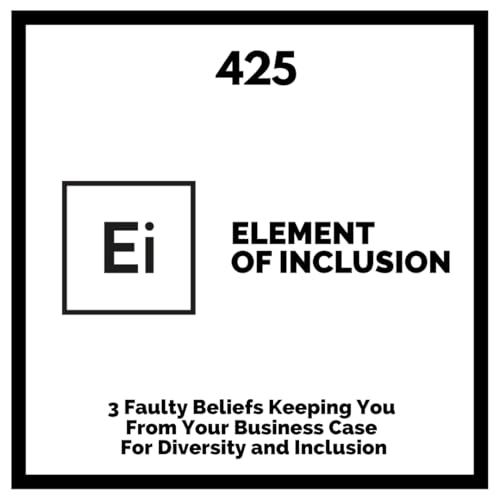It seems that organisations are still getting inclusion wrong.
Find out why!
Here are some key messages from this episode
- Why Organisations Get Inclusion Wrong
- How Others Are Discussing What We Discuss
- Assumptions That Prevent Us From Being Inclusive and much more
Play the episode for more.
Here are some key takeaways from this episode
Organisations Make 7 Predictable Errors That Include A One Size Fits All Approach
"We also spoke about an internal copy and paste approach when you duplicate efforts from other departments or from your employee resource groups and expect the same results. This cookie cutter approach, this one size fits all approach is why organisations get inclusion wrong."
Organisations Have Hidden Assumptions That Aren't Inclusive
"Can you see how what appears to be a reasonable statement actually hides assumptions that we don't agree with? Not being aware of these hidden assumptions is why organisations get inclusion wrong."
The Things Organisations Measure Don't Always Help Them To Create Change
"I'm saying that being inclusive and scoring high on inclusion are not the same thing. This is illustrated in the article using an example of a multinational energy company that has an inclusion index with scores of 80 percent."
Here are some resources so you can go deeper
Why are we still getting inclusion wrong?
Diversity Promises and Why You're Ignoring Them
Check out these related episodes of the show.
Why a One Size Fits All approach to Diversity is an Inclusion Mistake
A Solution To The 3 Biggest Problems Found In Organisations Trying To Become More Inclusive
Whenever you're ready, there are a few ways I can support your Inclusion Journey:
1. Work with me 1:1
2. Get Practical Book Insights
3. Get our Free Email Course
For everything else check this
https://linktr.ee/elementofinclusion
 2025/12/2313 分
2025/12/2313 分 9 分
9 分 9 分
9 分 13 分
13 分 46 分
46 分 17 分
17 分 2025/11/119 分
2025/11/119 分 2025/11/0412 分
2025/11/0412 分
